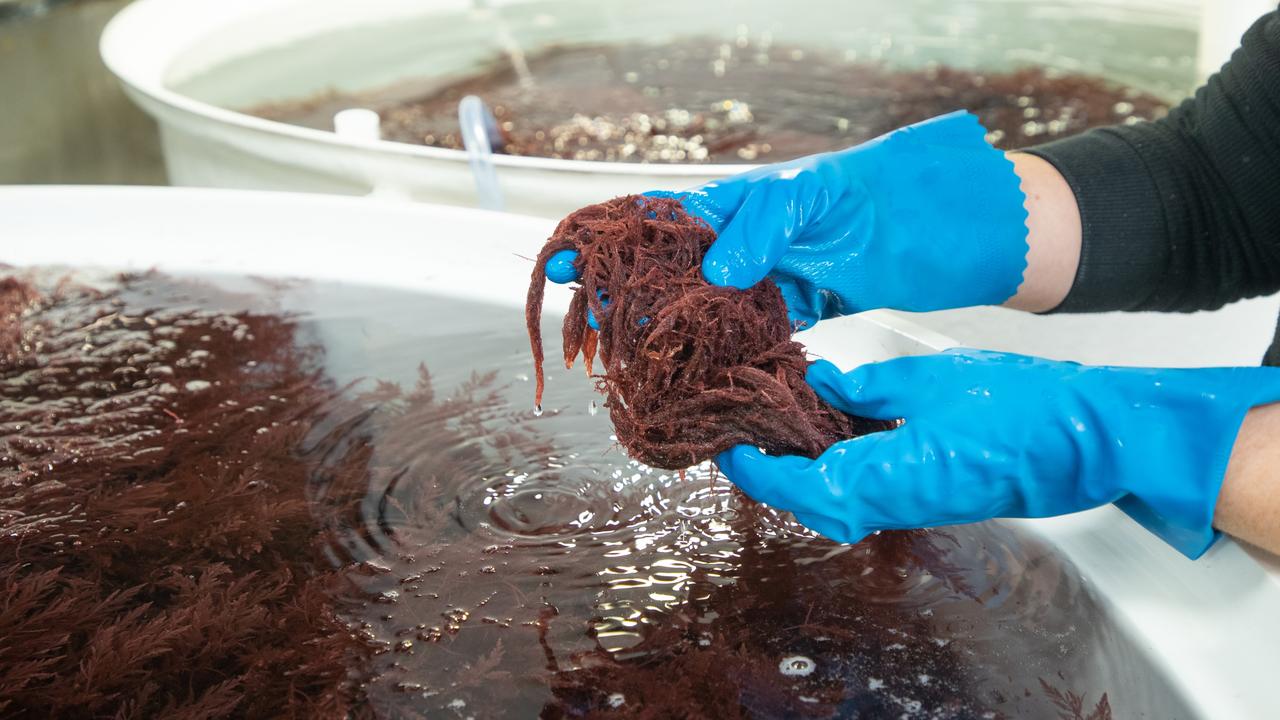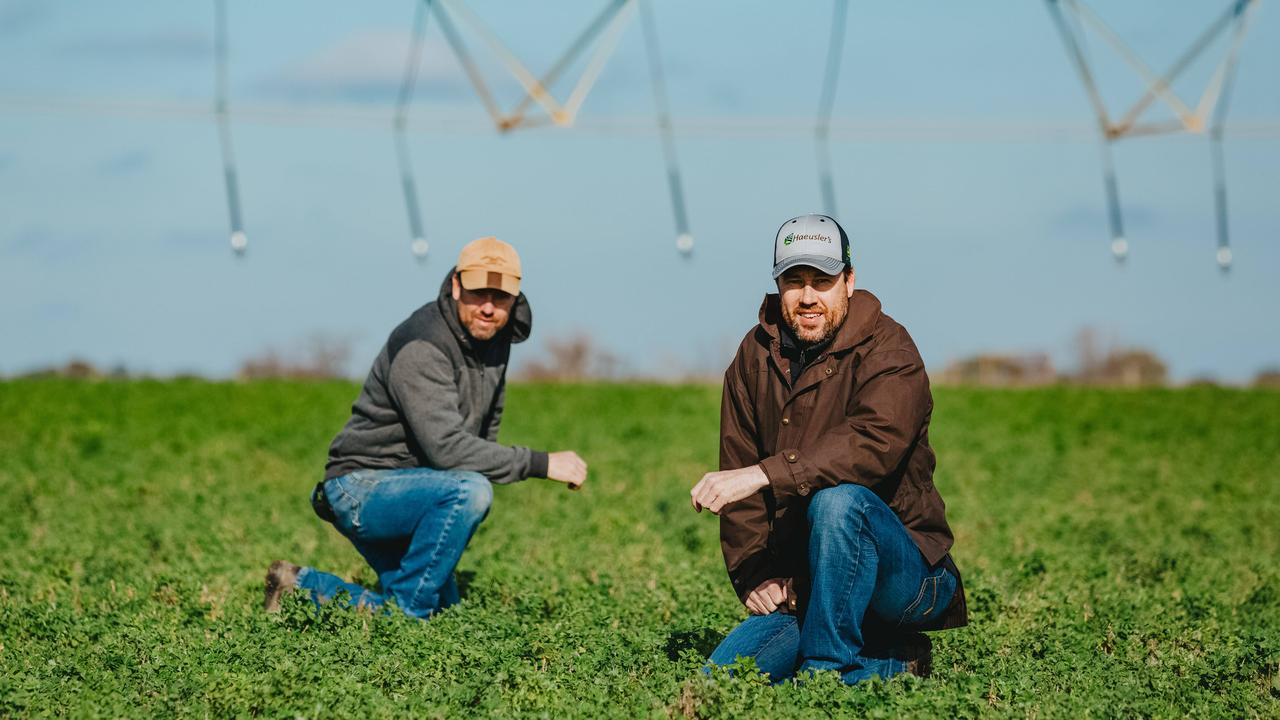Gippsland siblings keep family farm viable with own organic brand
WEST Gippsland siblings keep the family dairy herd viable by sticking to organic principles and creating their own dairy product range.
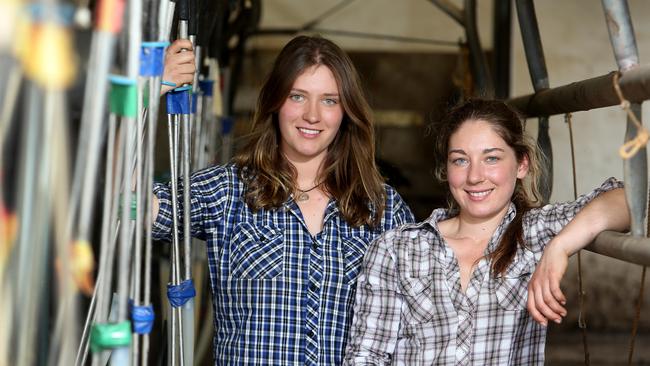
SISTERS Caroline and Sophia Jones have made their small milking herd of 60 cows work in a big way.
Caroline, 20, and Sophia, 25, manage their family’s certified organic dairy operation — CSM Organics in West Gippsland — and through their move to value-add, their brand, Tarago Valley Organics, has flourished.
“We have beautiful products,” Caroline says. “Nothing is added; our customers like natural and healthy and they also like supporting young farmers.
“We’re passionate about our model and the way we farm.”
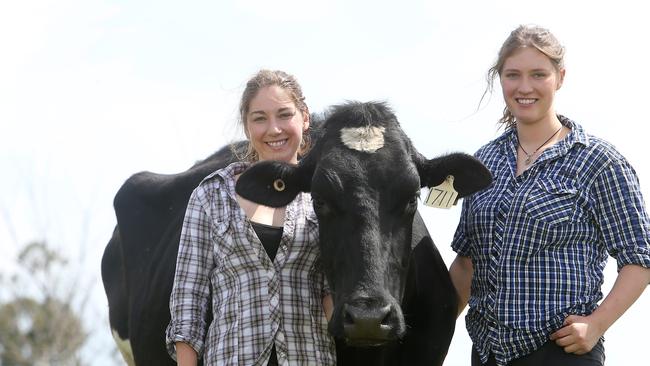
Sophia manages the 60 milkers on 40 hectares at Longwarry North, with the herd producing about 7000 litres of milk a week. They supply small processors at Mornington and Dandenong that make organic yoghurt, kefir, quark and haloumi. While they sell about 5000 litres to the processors, the rest goes into Tarago Valley branded products, which are sold by the Jones family.
“About 2000 litres (of milk) per week is used for our own products, which are mainly sold through farmers’ markets and smaller retailers and distributors,” Sophia says.
As part of the family’s succession plan, Caroline, Sophia and their brother, Michael, are buying the family’s collective 240 hectares from their parents, Vicki and Rowan.
“The girls have been innovative and hard working,” Vicki says. “Being a dairy farmer you feel quite powerless with the control of processing. The industry is in such turmoil, these young girls can prove this small herd is viable ... and actually makes money.
“They’ve implemented a model that is beneficial to the planet and a model that can be replicated; it’s about the future.”
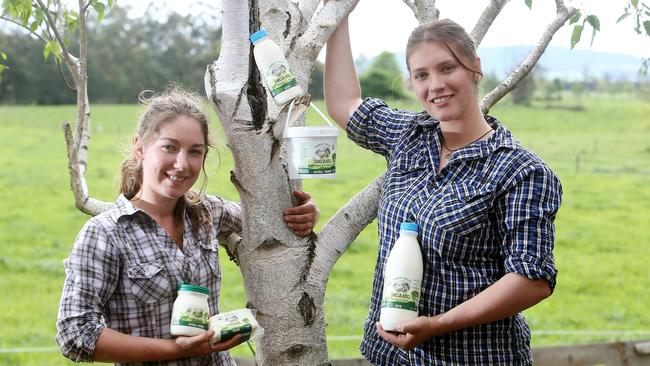
The Jones family moved to a pasture-only system 10 years ago, when grain shot to $500 a tonne, Vicki says.
“We couldn’t afford it and stopped feeding grain,” she says. “We noticed the texture of the milk changed and the colour and was creamier.
“So I did some research on pasture versus grain-fed milk, and found milk from pasture-fed cows is higher in beta carotene, vitamin E, conjugated linoleic acid and omega 3.
“No one was really talking about it back then and that was our point of difference.”
The family says their small herd keeps costs lower and allows flexibility in the way they manage their operation.
“We had to change the way we farmed and reduce our numbers,” Vicki says.
“We need to be more conscious of land and act like caretakers. It’s about what’s important to the girls, but it has to be economically sensible.”
Since going organic, the Jones family has seen an increase in the diversity of their pastures, which they believe contributes to the health of their herd.
There is also a no antibiotic policy in place, the family opting not to use antibiotics as a management tool.
“If we had a sick cow, then yes we’d get the vet out. What we find, because the cows aren’t exposed to the chemicals, we have a really strong herd,” Vicki says.
Bull calves are castrated and grown on with heifers, which Vicki says was an ethical choice.
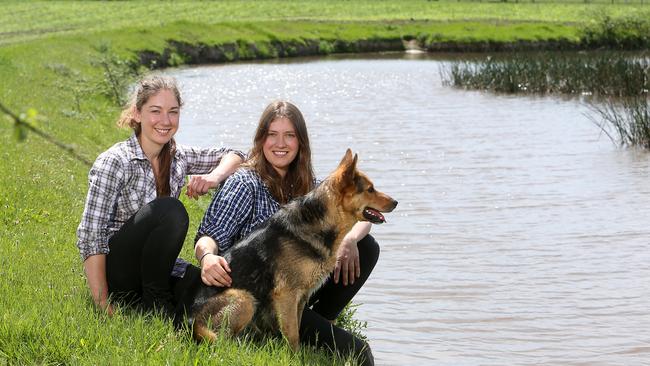
“Bobby calves are seen as a waste product and we didn’t like that as dairy farmers,” she says. “We raise them until 18 months to two years old and then they are processed and marketed to our customer base.”
The organic grass-fed dairy beef is sold under the Tarago Valley label in 5kg and 10kg mince packs and 10kg mixed packs.
“It’s about having control of the supply chain; we’ve had to create a market for it,” Vicki says.
Tarago Valley Organic products are sold at farmers’ markets, through local resellers and the Baw Baw Food Hub at Warragul.
A conscious decision was made to limit food miles.
“Part of our business model is we don’t travel more than 100km from the farm,” Caroline says.
“We’ve had inquiries from all over the country, but there’s no logic in the fuel used to transport perishable items when there are local options.”
A commitment was made to keep their products affordable and accessible, with prices of $5 for 500g of organic yoghurt and $8 for 1kg. Haloumi sells for $40/kg and kefir is $8 for one litre.
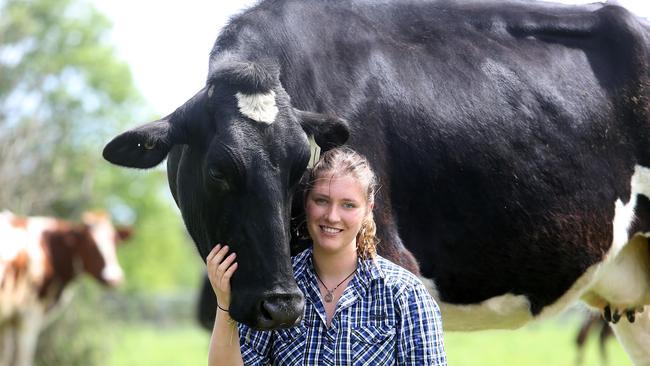
“There’s a perception about organic,” Caroline says, “it’s so expensive in the supermarket. But we wanted to make our product available so families could access it. That’s why we do a lot of direct selling. Because going direct you’re cutting out the middle man.”
Michael, 28, is in charge of pasture management across the family’s three properties, milking an additional 150 cows on 120 hectares to supply Pure Harvest at Drouin.
Sophia lives on the Longwarry North farm, manages milking and focuses on the dairy products organising deliveries and attending farmers’ markets.
“It’s rewarding, especially at farmers’ markets where I get to see customers appreciating the products,” Sophia says.
Caroline manages marketing and is in charge of the dry stock on their 90-hectare property at Cockatoo — including their goats, which are used for weed control.
“I’ve been on the farm since I was born,” Caroline says. “Growing up, it’s the lifestyle you enjoy so much; you fall in love with it.
“When we were younger, mum would say ‘go to school, you don’t want to marry a dairy farmer’ — she’d sort of use it as a scare factor. So it’s kind of ironic that we’ve gone down this path. But having control of everything we do, it’s made us love what we do.”
Harvest heroes
Visit Tarago Valley Organics at Harvest Fest 2018, Gippsland’s newest farming and lifestyle event held this weekend at Lardner Park, November 9-11.
“We’re on the farmers’ market side of Harvest Fest,” Caroline Jones says. “It will give us brand exposure and the opportunity to talk to people about our farming model and principles — there will be a range of people walking around. It’s the first multiple day event we’ve done.”
The event will include learning experiences and deliver latest trends in the agriculture, food and drink, health and lifestyle industries.
Farm file: Tarago Valley Organic
Caroline, Sophia and Michael Jones manage their family’s 240-hectare West Gippsland organic dairy operation and launched their own Tarago Valley Organic brand of products, using 2000 litres a week from a 60-cow herd at Longwarry North to produce organic yoghurt, kefir and haloumi. The siblings sell products through retailers across Gippsland and at farmers’ markets.

